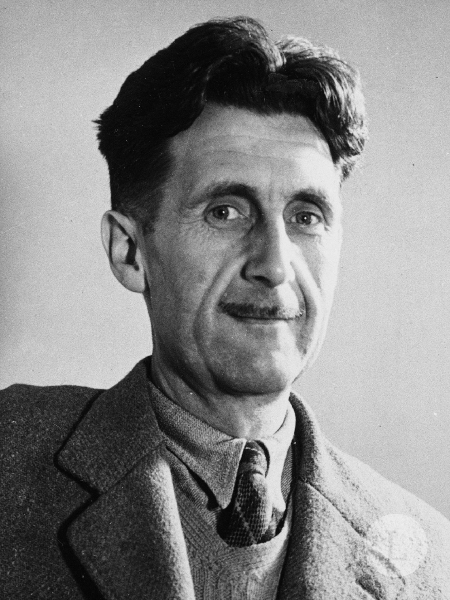Down and Out in Paris and London is George Orwell’s semi-autobiographical account of his experiences living in extreme poverty in Paris and London, first published in 1933. The novel explores the grim realities of destitution and sheds light on the socio-economic conditions of the impoverished in these two cities during the late 1920s and early 1930s.
BOOK INFO
version: CLASSIC, EBOOK, AUDIOBOOK
number of pages: 250
literary movement: REALISM
literary genre: SEMI-AUTOBIOGRAPHY
1st edition: 1933
year of writing: 1932
SUMMARY
The narrative opens in Paris, where the nameless narrator, representing Orwell, lives in a dilapidated hotel in a poor neighborhood, surrounded by eccentric characters. Initially trying to earn a living as a writer, he soon finds himself penniless due to a theft. He takes a job as a plongeur (dishwasher) in a grand hotel, working long hours in the chaotic, squalid, and oppressive environment of the hotel’s kitchen. The Parisian segment of the book provides a detailed account of the intense labor, poor wages, and unsanitary living conditions that the working poor endure. Orwell vividly describes the filth, bedbugs, and shared beds, painting a bleak picture of the realities of poverty.
The second half of the book shifts the setting to London. As the narrator returns to England, intending to secure a job as a tutor, he finds himself with a ten-day wait until his potential employer returns. Having sent his clothes to be pawned, he is left to live as a tramp, sleeping in lodging houses and roaming from spike to spike (casual wards of workhouses) with a diverse group of fellow vagabonds. Orwell details the stigma associated with being a tramp and critiques the Poor Law system, highlighting its inefficiency and the indignities it imposes on the poor. He reveals the monotonous routine, lack of privacy, and scarcity of food they experience, emphasizing the social ostracization that perpetuates their circumstances.
Throughout the book, Orwell critiques the social structures that not only perpetuate poverty but also rob the poor of their dignity. He also highlights how society judges the poor and downplays their struggles. He scrutinizes the systemic flaws that make it nearly impossible for those stuck in the cycle of poverty to break free.
MAIN CHARACTERS
Down and Out in Paris and London is semi-autobiographical and primarily features the narrator, George Orwell himself, as the main character. Here’s a brief description:
George Orwell (The Narrator)
As the protagonist of his own story, Orwell narrates his first-hand experiences of living on the edge of poverty in both Paris and London. In Paris, he works various jobs, mainly as a plongeur (dishwasher) in a hotel. He’s intellectual, observant, and often reflects on the conditions of poverty and the state of society. After losing his job, he lives a destitute life on the streets of Paris before moving to London.
Boris
Boris is a Russian emigrant whom Orwell befriends in Paris. He’s a former army officer and has grand dreams of opening a restaurant. Boris is ebullient and optimistic, often serving as comic relief. Despite his hardships, Boris retains his sense of dignity and hope.
Paddy
In London, Orwell falls in with Paddy, a fellow tramp. Paddy is older and more experienced with the life of a tramp. He shows Orwell the ropes of survival on the streets and in the spike (a type of homeless shelter).
Please note that while the book does include other minor characters, they are often transient and do not play a consistent role throughout the narrative.
The stars are a free show; it don’t cost anything to use your eyes.
GEORGE ORWELL
TOP 10 POINTS
- Realism of Poverty: The book vividly depicts the harsh conditions of the poor in both Paris and London during the time, including their struggles to find work, food, and decent places to live.
- The Working Conditions: The book exposes the terrible working conditions in the kitchens of Paris and the casual labor jobs in London.
- Societal Observations: The book offers insightful observations of the society, human nature, and the class divide.
- The Nature of Homelessness: Orwell discusses the harsh realities and stereotypes surrounding homelessness, challenging prevailing assumptions about the tramps or homeless people.
- Orwell’s Style: The book showcases Orwell’s keen observational skills, straightforward prose, and his talent for vivid description and storytelling.
- The Bistros of Paris: The account of Orwell’s life in Paris provides a detailed insight into the culture, life, and the ‘Bistros’ of Paris in the 1920s.
- Portrayal of Characters: Through the portrayal of a variety of characters – from restaurant owners to fellow plongeurs, from tramps to charitable patrons – Orwell creates a rich and diverse social tapestry.
- Broke Life: The book provides a firsthand account of what it is like to live with very little money and the constant worry of how to find the next meal or pay for a bed to sleep in.
- Comparative Analysis: The comparison between Paris and London serves as a critique of both societies and illuminates the universality of poverty.
- Orwell’s Evolution: The book is crucial in understanding the evolution of Orwell as a writer and social critic, and it foreshadows his later works that focus on social justice and the fight against totalitarianism.
AT THE END
Down and Out in Paris and London is more than just a portrayal of poverty—it is an exposé of the harsh realities of being poor in two of the world’s richest cities. Through his sharp observation and vivid description, Orwell invites readers to consider and empathize with the conditions of the less privileged. His firsthand account of poverty serves as a powerful critique of social injustice, one that continues to resonate today.
ABOUT WRITER

George Orwell, was an English author and essayist renowned for his influential novels 1984 and Animal Farm. Orwell’s works are characterized by their exploration of themes such as totalitarianism, social injustice, and the power of language. Through his novels and essays, Orwell left an enduring impact on literature and political thought.



